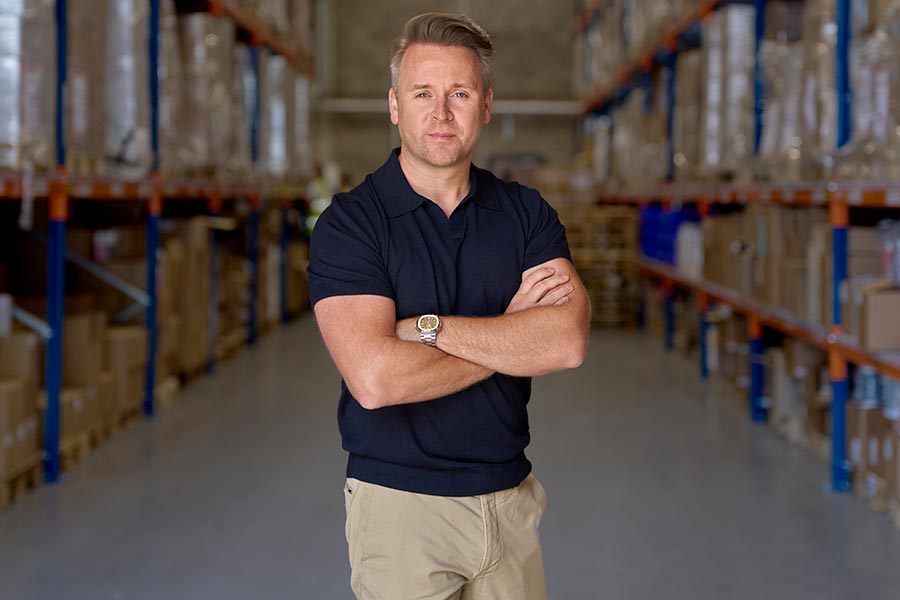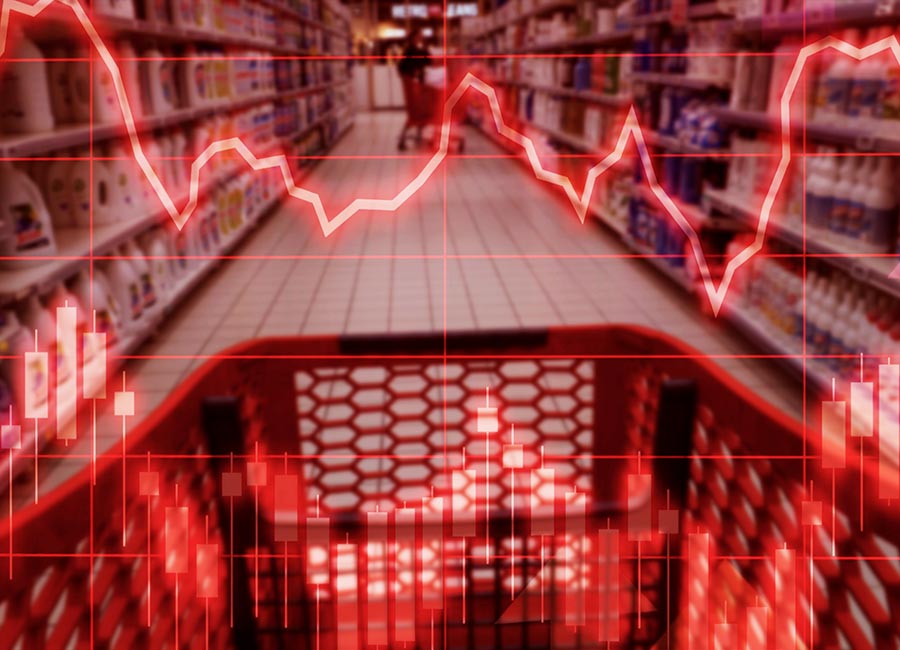The introduction of a dedicated Amazon.ie site could be a game changer for many Irish businesses, but what effect will it have on high street retailers? Galen English explores the pros and cons of the launch
The highly anticipated new Amazon.ie site is expected to launch in the coming months, and has been described as a game changer by some who see it as a gateway to untapped global markets.
It will undoubtedly mean better service for Irish customers and more one-day deliveries, but the consequences for the nation’s embattled high streets is not so clear.
The $2.38 trillion company has been keeping the exact launch date close to its chest, but this is expected to be sooner rather than later in the year.
All it would say when contacted was that “opening a store in Ireland is a natural next step for Amazon and follows investment in a new fulfilment centre and delivery station”.
In 2022 the company cut the ribbon on its 630,000 square foot fulfilment centre in Dublin’s Baldonnel Business Park, creating 500 new jobs operating on a seven-day-week rota.
Over 1,000 small and medium-sized Irish businesses already sell more than 5.5 million products on Amazon, but the company has said there is scope for that to expand.
Dubliner Alison Dunn has been appointed country manager for Amazon’s retail business in Ireland and will oversee the launch of the new site as it prepares to open its virtual doors.
In 2023, Irish SMEs selling on Amazon recorded over €170m in export sales, with over half of those (more than €100m) in export sales outside the EU.
Amazon says those SMEs have also gone on to create more than 2,500 Irish jobs to support businesses on their platform.
The question is why now and why is Ireland deserving of an Amazon.ie site considering its relatively small population?
All of the other Amazon subsidiaries serve much larger markets than what Ireland can offer.
Edgar Morgenroth, professor of economics at DCU Business School and a member of the IIEA Economists Group, believes Brexit has been a motivating factor behind the push for a tailor-made Irish site.
“For Irish customers, they run into Vat and customs issues buying from the UK,” Prof Morgenroth explains.
“Having a site here will make their life much happier when it comes to dealing with Amazon.”
Amazon insists the Irish site will be a boon to thousands of small domestic businesses who will for the first time be able to reach a global customer base.
“Amazon.ie will be a home for Irish businesses small and large and empower them to grow their online business both in Ireland and abroad,” the company promised in an upbeat press release issued to herald the new site in December.
Laura McCarthy, founder of Drinks Botanicals Ireland, a supplier of dried garnishes and natural syrups, has seen first-hand how Amazon can supercharge your business.
Last year her company, which started out selling homemade gin kits to her local off-licence in 2007, sold almost €1m on the site.
She is planning to expand into Canada later this year.
“It was a game changer for us because it allows you to scale internationally and for a small brand to punch above their weight,” McCarthy says.
“There’s a lot of excitement in the SME sector because it offers a real opportunity to be able to scale your business.
“I read somewhere there were 310m users on Amazon and 80% are from the US, so that’s a lot of customers outside Ireland.”
Laura has decided to use her expertise in navigating the maze-like process of selling on the site to set up a second company, Prime Solutions.
“Amazon is quite complex to navigate; it’s not like Adverts or Done Deal where you just stick something up,” McCarthy says.
“We want to offer strategic guidance, empowering other small businesses to replicate our success.
“We are going to do that by charging for bespoke plans depending on a company’s requirements.”
McCarthy says her top tip has been to let Amazon deliver the products. This has allowed her firm to scale.
More importantly, she says, it simply works.
She believes once retail business takes the omnichannel approach of being available on the shelves as well as online, there is a real opportunity to grow internationally.
“We are in Avoca, bars and Musgrave as well as online because it is good to have a mix. If a brand is left behind, you are only leaving space for your competitors to benefit.”
The Small Firms Association (SFA), whose members will be hugely impacted by the new site, was asked to comment but declined to offer a spokesperson.
Morgenroth believes the SFA may be reluctant to criticise a development which could have enormous benefits for some of its members.
“For Irish retailers with no online presence, this is extra competition. At the moment some people may be reluctant to buy from Amazon and prefer to buy local — but the new site may change that.
“The other dimension to consider is [that] Amazon is largely a platform for businesses and many small Irish businesses could benefit from an Irish domain which may make the SFA reluctant to comment.
“If you are a retailer who opposes Amazon, you are likely to want to keep your powder dry and see what happens,” he adds.
On the wider issue of whether the arrival of an Irish-specific Amazon site is going to be a good thing, Morgenroth’s answer is nuanced.
“It depends on where you stand. Consumers feel the benefit because while it is not always the cheapest, it is the easiest way to find something, which is what works for Amazon.
“It is always going to be a problem for physical shops. They are never going to have the same kind of range because it is impossible to hold that amount of stock.
“It is unequivocally a bad thing for the main street and town centres — the smaller the town or village, then the worse it is for them.
“In bigger towns they can keep enough stock and have a high enough footfall to cope, but it is much harder to do in a small town. With Amazon you are trading with the world.”
Morgenroth points out that physical shops have some advantages, including guidance from a sales assistant and easier returns.
But the very real risk facing communities across the country is bleak vistas of hollowed-out town centres and high streets with rows of boarded-up shop fronts.

“Consumers might want busy or vibrant town centres, but they are voting with their fingertips by continuing to shop online,” Morgenroth says.
“Today it would be very hard to find any adult in Ireland who hasn’t bought something online, which is very different from 20 years ago.
“Covid accelerated the use of online as people realised it worked. “The genie is out of the bottle. It is very hard to reverse the trend of online shopping now, but the problem is once the shops are gone, they generally don’t come back.”









